Premiere - Frankenstein : Paris Premiere Celebrates Guillermo del Toro’s Monumental Adaptation
By Mulder, Paris, Cinémathèque, 11 october 2025
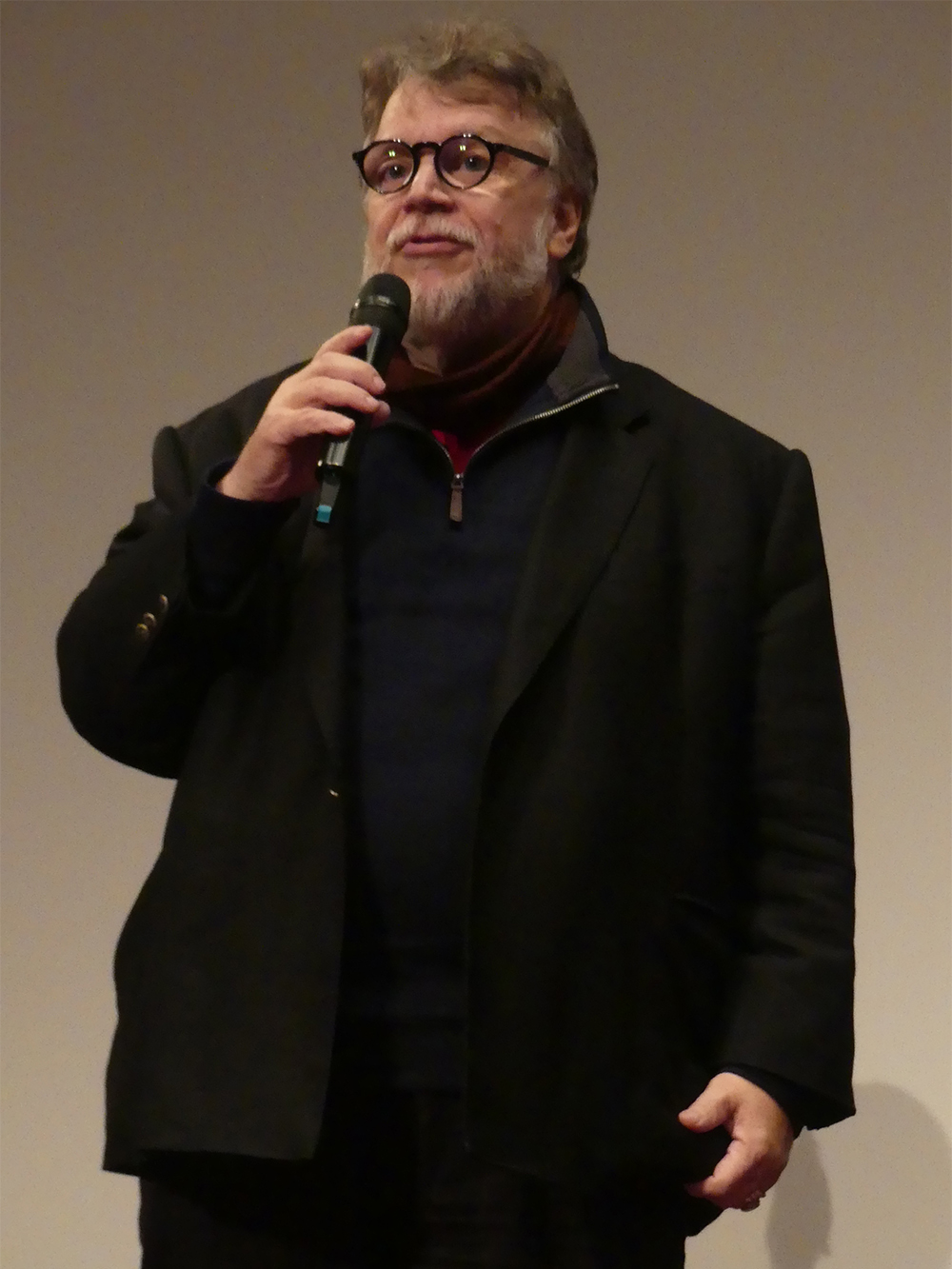
On October 11, 2025, the Cinémathèque Française became the epicenter of gothic emotion and cinematic reverence as Guillermo del Toro unveiled his long-awaited adaptation of Frankenstein to a Parisian audience. The Henri Langlois Theater, with its refined acoustics and architectural grace designed by Frank Gehry, was filled with an energy that only true cinephiles understand—a quiet hum of anticipation before the lights dim. The venue, named after Henri Langlois, the visionary who founded the Cinémathèque, once again lived up to its heritage: a temple dedicated to the preservation of film history welcoming one of the modern masters of cinema. Before the screening, Guillermo del Toro appeared alongside Oscar Isaac, Jacob Elordi, and Mia Goth, who received a warm ovation as they stepped onto the stage to introduce a film that had haunted its creator’s imagination for nearly two decades.
When Guillermo del Toro spoke to the audience, there was both tenderness and conviction in his voice. He described Frankenstein not as a horror tale, but as an emotional meditation on creation, loneliness, and faith. The filmmaker, who had once confessed that the monster of Mary Shelley’s novel was his “religion,” finally found himself showing the film he had dreamed of making since childhood. As he reminisced about seeing Boris Karloff’s portrayal of the creature for the first time, he described it as a revelation—his personal understanding of sainthood. The audience in the Langlois Theater listened in silence, aware that they were witnessing a deeply personal artistic confession, shaped by decades of passion and creative struggle. The project’s journey—from its first conception in the mid-2000s, through countless drafts and delays, to its rebirth under Netflix’s wing—had become as legendary as the myth it sought to reinterpret.
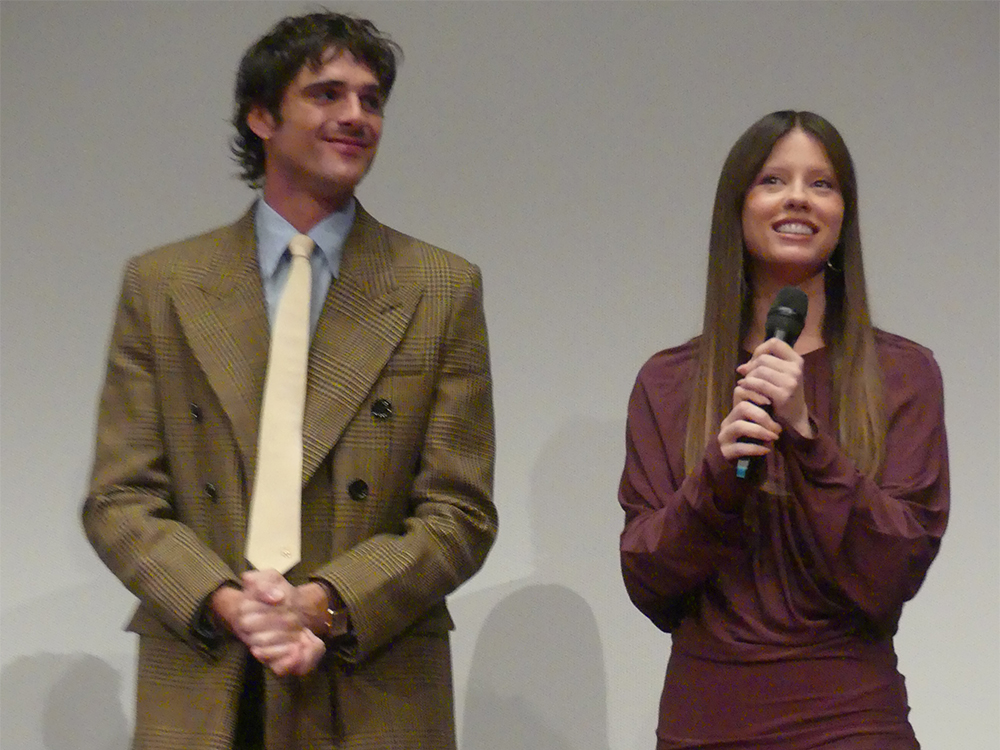
For Guillermo del Toro, this adaptation represents the culmination of a lifelong dialogue with Mary Shelley’s immortal text. His Frankenstein draws inspiration not only from Shelley’s 1818 novel but also from James Whale’s classic 1931 film and its sequel Bride of Frankenstein. Yet what distinguishes this version is its distinctly emotional register—a blend of gothic grandeur and lyrical spirituality underscored by Alexandre Desplat’s hauntingly melodic score. As Desplat himself put it, the film’s music was designed to be “lyrical and emotional,” avoiding the expected horror tones in favor of something deeply human. Shot by Dan Laustsen, Guillermo del Toro’s longtime collaborator, the film envelops its characters in chiaroscuro landscapes and shadowed cathedrals of the soul, recalling both Renaissance paintings and silent-era pathos.
The cast assembled for this film mirrors the director’s ambition to merge the tragic and the sublime. Oscar Isaac, portraying Dr. Frankenstein, described the movie as “a very European story told through a Latin-American, Mexican, Catholic point-of-view.” His performance, described by early viewers as operatic, reportedly captures both the arrogance and the anguish of a man defying divine limits. Jacob Elordi, who replaced Andrew Garfield due to scheduling conflicts, embodies the creature with a raw physical presence and heartbreaking sensitivity—a challenge magnified by Guillermo del Toro’s decision to completely redesign the monster’s look in only nine weeks. Mia Goth, meanwhile, lends her trademark intensity to a character who bridges beauty and madness, echoing the emotional textures she brought to X and Pearl. Supporting roles by Felix Kammerer, Lars Mikkelsen, David Bradley, Charles Dance, Christoph Waltz, and Lauren Collins enrich this universe of ambition and decay, each performance adding another layer to the tragic symphony.
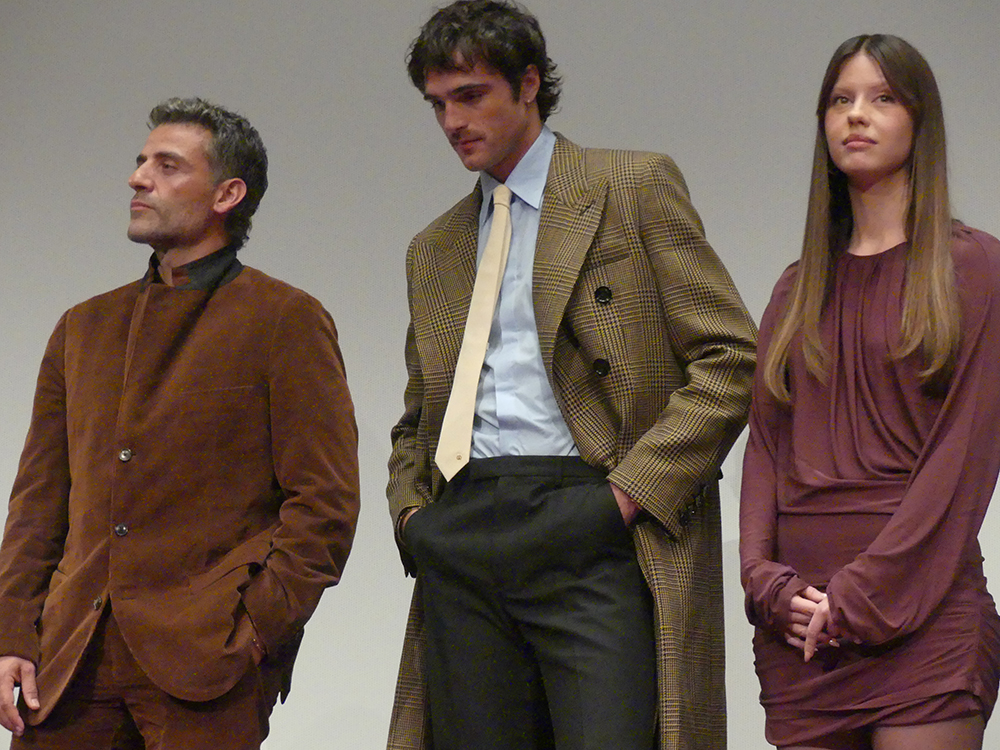
The path leading to this premiere was as labyrinthine as one of Guillermo del Toro’s own cinematic mazes. Since first declaring his wish to adapt Frankenstein in 2007, he had oscillated between excitement and hesitation, calling it both his dream project and his greatest fear. Over the years, the film gathered mythic status: false starts at Universal, abandoned designs, even makeup tests with Doug Jones, who was once set to play the creature. When Netflix revived the project in 2023—fresh off the success of Guillermo del Toro’s Pinocchio—it marked not only a professional resurrection but also an emotional one. The filmmaker finally had the creative freedom and technological resources to construct the world he had imagined for so long. Filming began in Toronto in February 2024 and concluded in September, with additional shoots in Edinburgh’s Royal Mile and the stately Burghley House in Lincolnshire—locations chosen for their fusion of decay and grandeur.
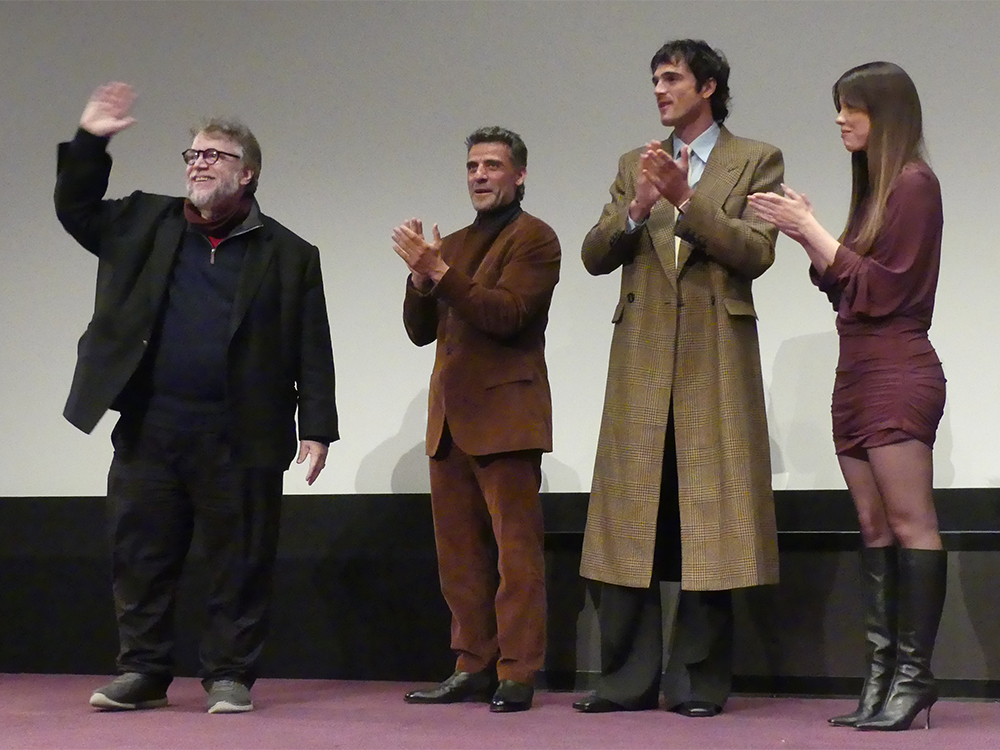
By the time Frankenstein premiered at the 82nd Venice International Film Festival in August 2025, audiences knew they were watching not just a film, but a culmination of decades of artistic yearning. The screening at the Cinémathèque Française, however, felt different—more intimate, almost sacred. As Guillermo del Toro and his cast stood before the Parisian crowd, it was as though the film had come full circle: a gothic dream born in Mexico, sculpted in Hollywood, and consecrated in the city that has long celebrated both Mary Shelley’s imagination and cinematic artistry itself. The evening ended in applause that lingered beyond the final credits, a standing ovation not just for the film but for the perseverance it represented.
With its official French release set for November 7, 2025, Frankenstein promises to stand as one of Guillermo del Toro’s defining works—a synthesis of his lifelong obsessions: beauty and monstrosity, religion and rebellion, art and agony. It is, in every sense, a resurrection—of the monster, of the myth, and of the idea that cinema can still feel like a miracle when guided by the hands of a true believer.
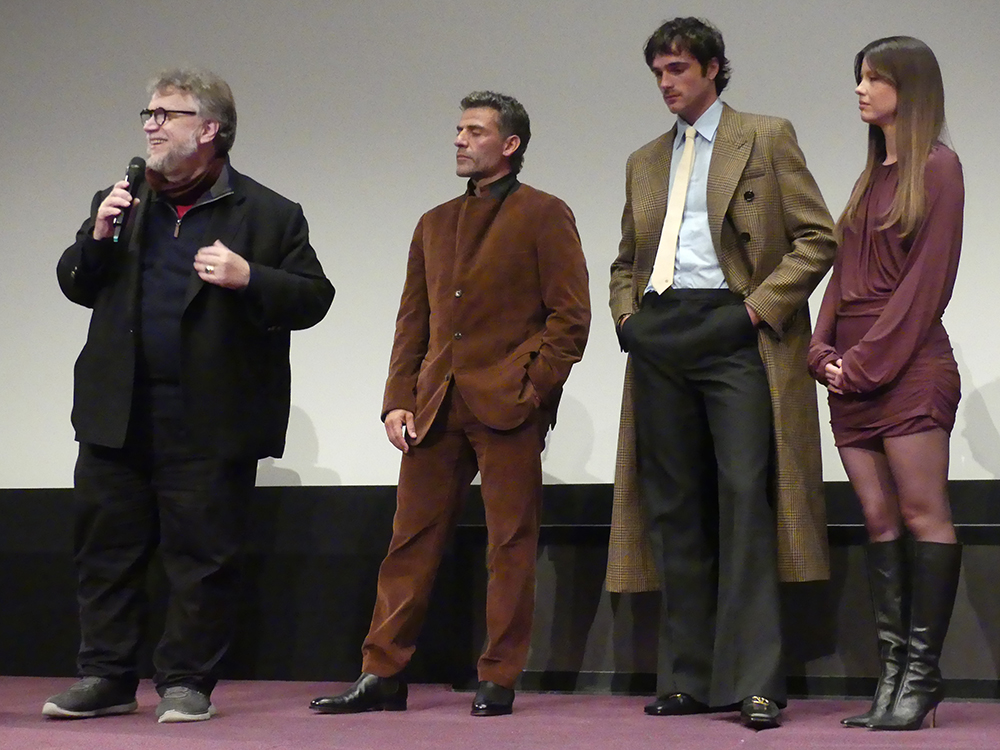
You can discover our photos in our Flickr page
Synopsis :
Eastern Europe, 19th century. Doctor Pretorious sets out in search of Frankenstein, who was believed to have died in a fire forty years earlier. His goal is to continue the experiments of the monster's creator, Doctor Frankenstein.
Frankenstein
Written and directed by Guillermo del Toro
Based on Frankenstein; or, The Modern Prometheus by Mary Shelley
Produced by Guillermo del Toro, J. Miles Dale, Scott Stuber
Starring Oscar Isaac, Jacob Elordi, Mia Goth, Felix Kammerer, Lars Mikkelsen, David Bradley, Charles Dance, Christoph Waltz, Lauren Collins
Cinematography : Dan Laustsen
Edited by Evan Schiff
Music by Alexandre Desplat
Production companies : Double Dare You, Demilo Films, Bluegrass 7
Distributed by Netflix
Release dates : August 30, 2025 (Venice), October 17, 2025 (United States), November 7, 2025 (France)
Running time : 150 minutes
Photos and video : Boris Colletier / Mulderville

